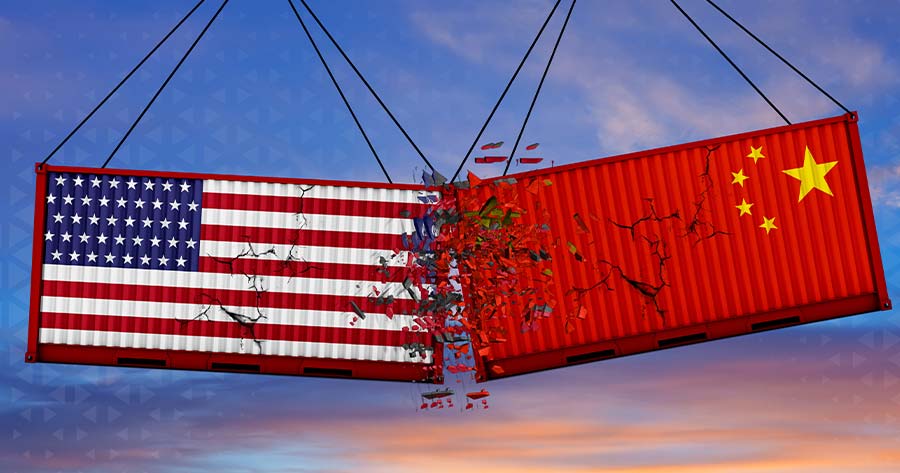On Wednesday, China filed a complaint against U.S. President Donald Trump at the World Trade Organization (WTO) over the new 10% tariff on Chinese imports and cancellation of a duty-free exemption for low-value packages, alleging the move was protectionist and broke WTO rules.
Beijing’s request for consultations on U.S. trade came amid confusion among shippers and retailers over Trump’s termination of the de minimis exemption for packages valued under $800. The exemption was widely used by e-commerce platforms like Shein, Temu, and Amazon.
Officials from Customs and Border Protection said that moving forward, all small packages from China and Hong Kong would be required to have customs entries on file before the arrival of the package, and there was a potential of some cargo being sent back for lack of necessary paperwork.
According to the WTO, China has requested for consultation with the U.S. on tariffs. China has argued that Trump’s measures aimed at blocking shipments of fentanyl opioids and their precursor chemicals to the U.S. were imposed based on unfounded and false allegations against China.
It claims that the taxes are discriminatory, only enforced on goods from China, and is inconsistent with the WTO obligation.
The dispute could lead to the WTO ruling that Trump’s tariffs violated trade regulations, which would repeat the same case from 2020 when the trade organization ruled that his China tariffs broke trade laws in his first term.
However, any victory in the dispute is unlikely to ease the tension, as the WTO Appellate Body has been inoperable for years, due to the U.S. having blocked the appointment of appellate judges as its claim that the judicial body is overreaching. This move also prevented the final verdict in the 2020 case.
Meanwhile, according to people familiar with the matter, talks between Trump and Chinese President Xi Jinping on tariffs remain in the dark.
On Tuesday, just before the tariffs came into effect, Trump said that he was in no rush to speak with Xi on the matter.
China then responded with retaliatory measures targeting imports of U.S. coal, liquified natural gas, crude oil, and farm equipment, while launching an anti-monopoly probe into Alphabet’s Google.
The launch of the new trade war caught retail and shipping sectors off guard.
Maureen Cori, co-founder of New York-based consultancy Supply Chain Compliance, said that no one has prepared for the trade war, and the industry needs direction from the government on how to handle the situation.
Currently, de minimis cargoes are consolidated so customs can expediently clear thousands of shipments at a time, as these parcels will now require individual clearances, significantly intensifying postal services, brokers, and customs agent’s workload, said Cori.





